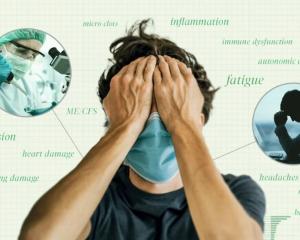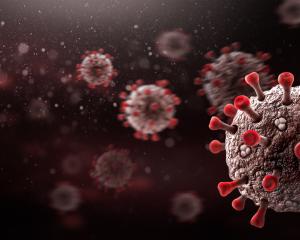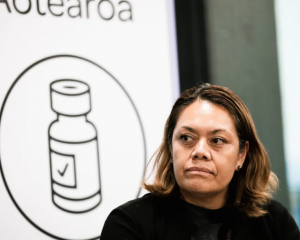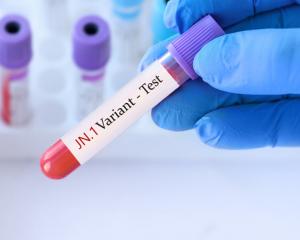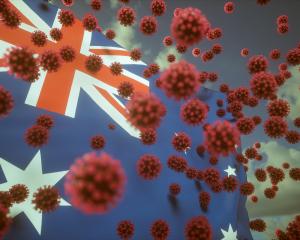New Zealand will move to phase three of the Omicron response from 11.59pm today.
Covid-19 Response Minister Chris Hipkins confirmed the move at a press conference today. Hipkins said today's number of community Covid cases was in the area of 5000, and after more than 3000 yesterday, that was a factor in the Government's decision for the shift.
The Ministry of Health advised in its statement this afternoon there were 6137 new community cases, confirmed by both RAT and PCT tests.
"This continued rise and also the number of hospitalisations we have which today sit at 205 means that we are now confirming our shift to phase three of our planned Omicron response. That'll happen at 11.59pm tonight," Hipkins said.
The government initially set out the three phases of its Omicron response late last month, signalling an increasing reliance on automated systems and home isolation as growing case numbers threaten to overwhelm contact tracing, testing, and MIQ.
It was initially suggested New Zealand may never reach phase three, expected to trigger when the country was getting about 5000 cases a day, but with numbers at that level from today, the move has been confirmed.
"I don't think the shift is going to come as a surprise to many people," Hipkins said.
"Phase three won't mean any sudden lurch in terms of personal movements or restrictions."
Only confirmed cases and their household contacts - the people they live with - will be required to isolate. All other contacts will be asked to monitor for symptoms but they will not have to isolate.
Rapid antigen tests (RATs) will become the primary means of testing for Covid-19, and will be available from thousands of sites. Millions more are expected to arrive over the coming days.
It is expected that businesses will be able to make the tests available to the public through retail outlets from March, he says.
Because only household contacts are required to isolate, a self-assessment tool will help the government keep track of very high risk locations and the overall spread of the virus.
This includes things like hospitals and aged care facilities.
Hospitalisations become a major focus and daily case numbers will be a less important metric from now, Hipkins says.
"There's no doubt the next few weeks are going to be pretty challenging... We just need to stick to the plan that we've set out as we manage a higher number of cases in our coming weeks before we reach a peak as other countries have."
He says Omicron's lower likelihood of severe illness, and high vaccination rates, are what allows the self-management approach.
He suggests people have an isolation plan, and talk to friends and whānau about how they will manage if they need to isolate.
He also urges people to take up booster shots.
"You are far less likely to end up in hospital if you get Covid-19 if you've had a booster."

Dr Ashley Bloomfield said the move to phase three was advisable due to the roughly 5,000 confirmed cases and the high demand for testing.
Testing at GPs and other places should ease the pressure on laboratories previously used for testing, Bloomfield added.
Bloomfield says one of the reasons for advising the move to phase three alongside the case numbers today, is it coincides with shifts already going on in Auckland and Northland to a focus on RAT testing, so PCR testing is reserved for people who are unwell or more susceptible, for example those in hospital.
To confirm - people who are symptomatic, and people who are asymptomatic who test positive on RAT tests, will be considered confirmed cases.
People should also advise their employer if they test positive, he says.
Both cases and household contacts will need to isolate for 10 days.
Bloomfield says while only household contacts will be required to isolate, cases should still notify people who are non-household contacts.
"And for example they may need to modify what they do, not visit older relatives or people who may be susceptible if there's a risk they were a contact."
Meanwhile, speaking to media in Christchurch this morning, Prime Minister Jacinda Ardern says there will be a time and place to loosen Covid-19 restrictions "but when we remove them it will be because it's safe to do so".
"Seventy-five per cent of New Zealanders in surveys have said that they agree with the level of protections we have right now as Omicron cases increase, or think they should be strengthened," she says.
"So that is giving a very strong sense of where the majority of New Zealanders sit on the management of the pandemic and I think they would be extraordinarily disappointed if the Government was swayed by a much smaller minority who happen to be behaviour illegally on the forecourt of Parliament."
Ardern says any decisions "would be based on public health advice, not protest activity".
Earlier, those on the front line of the Omicron outbreak said they were hoping for a swift move to phase three of the government's response.
It would mean fewer people will have to isolate if they come into contact with a case and people will be able to self-report infections or get a rapid antigen test (RAT), leaving PCR testing for only the highest risk contacts.
The government is announcing its latest moves at a scheduled media conference today.
Auckland GP Dr John Carter said it was about time.
"We have to move away from swab testing, and there's an announcement that we'll be delivering RAT tests which has come upon us pretty quickly, we've got no real time to figure out how to distribute those to our patients but we'll work it out as we've done all along."
Vicky Chan from Pakuranga Unichem said she was already getting phone calls from people wanting to access RATs but pharmacies would not be able to give them to the general public.
"The amount of phone calls just inquiring how do they get a RAT test either because they are close contacts, casuals, or symptomatic that's gone through the roof, but also from the general public wanting to have access to personal RAT tests as well."
Under phase three, infected people will still be encouraged to notify close contacts and isolate at home.
Dr Carter said people would need to use their common sense.
"For most people, this is a cold and really the country can't come to a screaming halt because of a cold. People have to be able to isolate at home and manage their symptoms as they normally would and just follow the sensible rules."
- additional reporting NZ Herald

